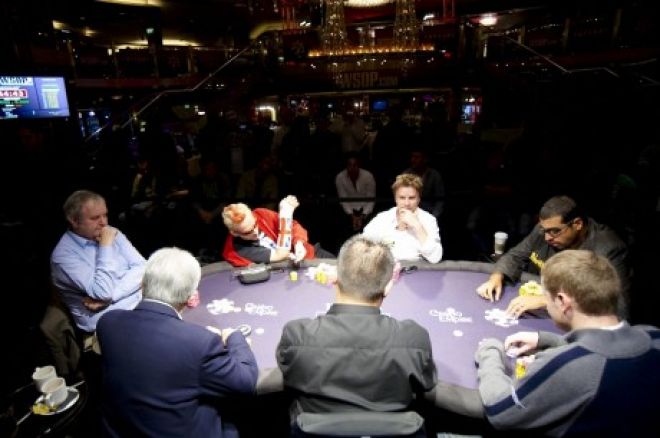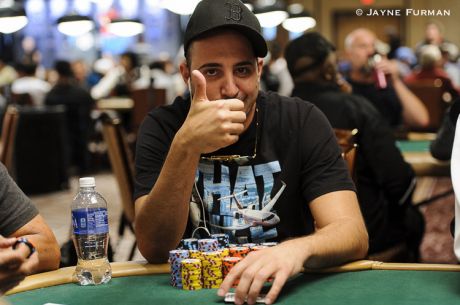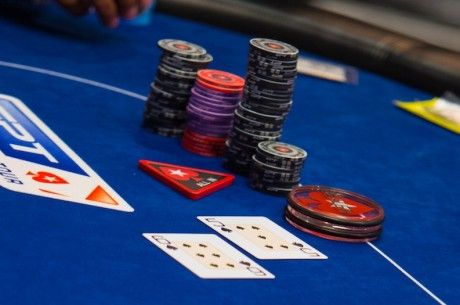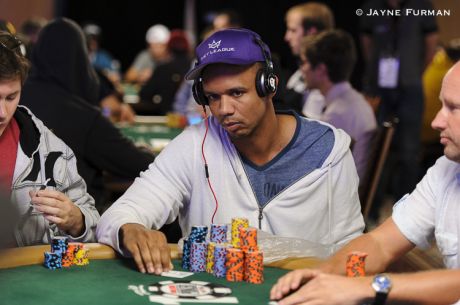Becoming Aggressive During Short-Handed Play

Earlier this year while covering the final day of a tournament, I noticed something I had rarely seen occur at the tables. The field was down to the final 12 players, so those remaining were split into two six-handed tables. Then for more than a full orbit, I witnessed one player absolutely steamroll his opponents.
I understand that what I just said is a very subjective observation, but the dominance can only be described as such. As a tournament reporter, I sometimes will have to wait for some time for a hand to occur that is truly significant to the story of the tournament. Such hands are usually large pots or preflop all-ins �� that is, the importance of the hand is obvious to all, representing a player at risk for his or her tournament life.
In this scenario, however, it was the amount of smaller pots scooped by one player that told a story. And he wasn��t just dragging a lot of pots �� but every pot. As in seven in a row!
The pots he won were of various sizes �� some just blinds and antes, others including further bets from opponents who folded to him. It��s highly possible this player received several solid starting hands in a row. Whatever the case may be, the sequence resulted in the player taking control of the table and truly dominating the short-handed game. It also demonstrated at least three reasons why ramping up the aggression when a final table becomes short-handed is often a recommended strategy.
First and foremost, it was clear the player was taking advantage of the short stacks tightening up. There were two or three players at the table who had less than 20 big blinds, one of whom was sitting on a 10-BB stack. The aggressive opener took advantage when the short stacks were in the blinds, forcing them to make a decision for all of their chips.
As each short stack was quite wary of the imminent pay jumps �� a phenomenon we were discussing last week in ��The Ten-to-One Rule in Tournament Poker�� �� they instinctively tightened up and allowed themselves to be bullied.
On the final hand of the series, the aggressive player opened with a raise from his button and the shortest stack at the table finally fought back, pushing all in from the big blind. Over the course of the previous half-dozen hands, the aggressive player had accumulated enough extra chips to allow him to make a loose call of the reraise �� not a huge risk for a chance to bust an opponent.
Fortune favored the bold here, as the aggressive player flopped top two pair with Jx10x to reduce the field by one.
As I mentioned before, it is very possible that the aggressive player picked up several solid starting hands during the sequence and that��s why he picked up all of these pots. However, the raise and call with Jx10x in the final hand makes me think otherwise. It is very likely that he adopted the short-handed strategy of opening up his range of playable starting hands.
Since there are fewer players at the table, blinds come around faster and the action tends to speed up. This leads to players participating in a lot more pots than they would at a standard nine-handed table. With this in mind, players should open up their range of playable hands in order to keep up with the changing dynamic of the game. Doing so allows a player not to be blinded out and run over while patiently waiting for premium starting hands.
Finally, I witnessed that every action this player made could be labeled as aggressive. Each time that he came into a pot he was making an aggressive action, whether it was a raise or a reraise.
Aggressive actions are important in poker because they essentially give you an extra chance to win the pot. As always, you can attempt to win at a showdown, but by being the player to push the action, you are also afforded a win should your opponent decide to fold his or her cards.
Becoming aggressive during short-handed play thus gave this player three clear advantages during the most important part of the tournament, allowing him:
- to benefit from short stacks tightening up;
- to avoid risking blinding out or being run over himself;
- and to give himself multiple ways to win pots (at showdown or by forcing folds).
It will be interesting in a couple of weeks to watch what happens during the 2014 World Series of Poker November Nine after the first few players are eliminated from the final table and play becomes short-handed �� in particular whether some players shift gears to become more aggressive and try to take advantage of others who do not.
Get all the latest PokerNews updates on your social media outlets. Follow us on Twitter and find us on both Facebook and Google+!








